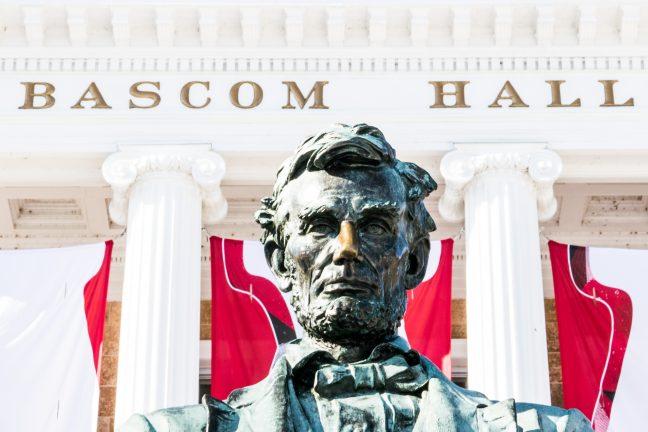The University of Wisconsin-Madison hired more new faculty this year than it has in the last 15 years, and has seen a decrease in the number of faculty leaving for other universities, according to a blog post by UW Chancellor Rebecca Blank.
In her September blog post, Blank wrote that 147 new faculty members joined the university at the beginning of this academic year. She also wrote that during the 2018-19 school year there were 46 retention cases, a situation when competing universities offer to hire a faculty member for a higher salary and UW must make a counter offer to retain that faculty member.
The number of retention cases is down from previous years. According to Blank’s blog there were 64 in the 2017-18 school year. Vice Provost of Faculty and Staff Michael Bernard-Donals said in an email to the Badger Herald that the university has invested $51.6 million in counter offers since 2015.
“Our success in retaining our faculty shows that people stay, even in the face of higher salary offers, because this is an exemplary place to do world-changing research,” Bernard-Donals said in his email.
Additionally, Bernard-Donals said UW has invested more than $70 million in merit-based raises and one-time bonuses. The effort put into increasing salaries and counter offers has led to UW moving from 12th place, out of 12 for average faculty salaries, to 11th among American Association of Universities peer institutions, Bernard-Donals said.
University Committee Chair Terry Warfield said staff are drawn to the university for reasons beyond salary.
“Faculty are motivated by how they see the opportunities here matching up with their goals as a scholar,” Warfield said. “One of the unique things about Madison is that it’s not only a great research platform, but research [done here] fits into a broader mission around teaching and outreach, or what we call the Wisconsin Idea.”
Warfield said when faculty choose to leave, they are leaving behind an opportunity to be a part of something bigger than their own research. Without these opportunities, Warfield said he believes that many more faculty would have left the university in past years.
Academic Staff Assembly Chair Tim Dalby wrote in an email to the Badger Herald that he is proud of the university’s ability to retain and hire talented staff.
“To be a world-class institution, we need to attract and retain world-class faculty,” Dalby said in his email. “We also need world-class staff because our University is made up of so much more than faculty. While Madison has many attractions, pay and conditions are a major component of any employment.”
Past difficulties in hiring were due to more than UW having lower average salaries than peer universities, Warfield said. Budget cuts and changes in tenure policy made prospective faculty members hesitant to work at UW in the past.
“UW Madison was put into a negative light by severe budget cuts and changes in tenure, and those were negative signals to the market,” Warfield said.
According to Warfield, two budget cycles ago the university had a billion dollar budget cut from the state, but in the most recent budget the university received a small increase in funds.
The changes in tenure policy occurred during the 2015-16 school year. Warfield said the policy change meant tenure guidelines were no longer in the state statute, but instead tenure was defined in Regent policies.
During the 2015-16 school year, 144 faculty members received job offers from other universities, according to Blank’s blog post.
“[The tenure policy] is still just as strong and just as valuable,” Warfield said. “It took several years for the word to get out and for people to understand that.”
UW is happy to be on the positive side of retention and hiring trends now, Warfield said.
Another unique facet of the university which attracts perspective faculty members is shared governance, and many universities do not have a system that gives power to faculty, students and staff, Warfield said.
“UW Madison is the gold standard when it comes to good governance within the university,” Warfield said. “[There are] faculty who are other places who don’t have a voice in decision making [and] they want to be here. They want to come here. That’s why we’ve been successful.”
Dalby said he hopes state legislators negotiate budgets with the university in the future that are fitting of all the benefits staff and faculty provide to the state.
In order for the university to move up from 11th place in salary among AAU peers, Warfield said UW needs the state to continue to invest in the university.
“Talented, dedicated faculty and staff are any university’s most valuable assets,” Blank wrote in her blog. “I’m proud of the progress we’ve made in our efforts to attract and maintain the very best.”


